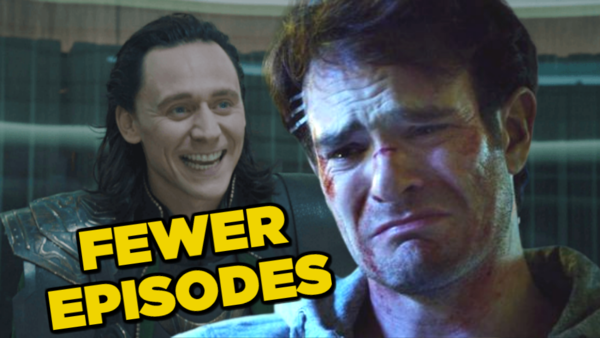MCU: 10 Netflix Mistakes The Disney Plus TV Shows MUST Avoid
13 episodes? Maybe not!

Be assured that this is not a smear-campaign against the Netflix Marvel shows. Much of what we saw in its four year tenure was phenomenal, and fans cannot deny the importance of its contribution to the on-screen Marvel canon. Unfortunately, a follow-up conversation regarding the magnitude of its many flaws is unavoidable.
The Marvel TV torch is about to pass on, and the very tone of Disney Plus' content will undoubtedly be drastically different to Netflix's. That much is a given. But were the following mistakes really exclusive to Netflix, or were they simply popular bad habits within the general climate of modern TV?
Assuming it's the latter, then Disney could swiftly fall prey to the same rough traits, and bring about an untimely demise to its lucrative game-plan for Loki, Falcon, Scarlet Witch, and all the rest. It's crucial that Marvel and Disney do not rest on their laurels, even given what they've achieved so far. And with that in mind, us fans must only thank the Netflix shows for granting us the following pointers to avoid.
10. Making The Content Excessively Gritty

It may seem unlikely that anything with the Disney tag will be as blood-spattered as Netflix's content. But still, there's 'gritty' in a broader sense. Netflix just happened to be guilty of it on the gory side of things. We all know Frank Castle is a brutal SOB, but having him repeatedly knife somebody in the neck when a good honest thump to the head would suffice made him seem kind of silly. And that's before we get to the old 'grenade-shoved-in-a-severed-head' trick...
The point is that characters need to operate in a sensible context, even if their characteristics are intense. Even without the graphic excesses, Disney could be equally as guilty of over-emphasising the dark traits of post-war Bucky Barnes and the orphan plight of Scarlet Witch, by pulling out some horrific and unimaginative nuance that is meant to shock, but will instead hint at weakness on the writers' part.
Imaginative storytelling should solve this, no problem. But with an increasingly diligent audience at the forefront, this is an exercise that can't be ignored even once.